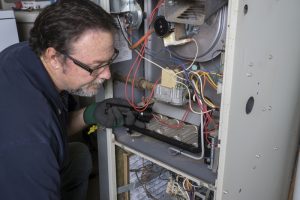 Soon enough, temperatures are going to cool down for fall, and before we know it, there will be a familiar winter chill in the air. Fortunately, you still have plenty of time to schedule your heating maintenance appointment! In fact, now is the perfect time to schedule it, since it’s when HVAC professionals are less likely to be out on emergency HVAC repair calls while the weather is milder between seasons.
Soon enough, temperatures are going to cool down for fall, and before we know it, there will be a familiar winter chill in the air. Fortunately, you still have plenty of time to schedule your heating maintenance appointment! In fact, now is the perfect time to schedule it, since it’s when HVAC professionals are less likely to be out on emergency HVAC repair calls while the weather is milder between seasons.
Whatever you do, be sure you’re consistent with scheduling maintenance. If it’s been more than a year since you’ve had a heating tune-up, then the time is now to get it done, no matter what time of the year you’ve come across this blog post. Why is this so important? Read on to find out!

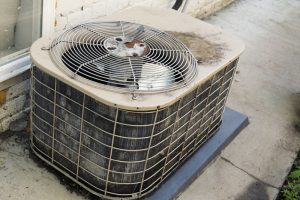 You are going to need air conditioning repairs eventually. No air conditioner is perfect. There is no way to guarantee 100% reliability with any AC system. While routine air conditioning maintenance will keep your system as effective and reliable as possible, there is still the chance for problems to develop. What types of problems? Anything from refrigerant leaks to motor issues and capacitor failure.
You are going to need air conditioning repairs eventually. No air conditioner is perfect. There is no way to guarantee 100% reliability with any AC system. While routine air conditioning maintenance will keep your system as effective and reliable as possible, there is still the chance for problems to develop. What types of problems? Anything from refrigerant leaks to motor issues and capacitor failure.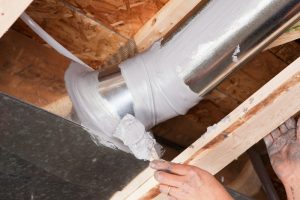 Have you ever invested in duct testing before? Did you know duct testing was actually a necessary service? Duct testing helps our technicians discover where and how you might be having inefficiencies and indoor air quality problems in your home. For instance, we might find that you have a tear or loose joints that are leaking conditioned air into unoccupied spaces. This not only leads to inefficient HVAC performance, but can introduce allergens and contaminants into your living space.
Have you ever invested in duct testing before? Did you know duct testing was actually a necessary service? Duct testing helps our technicians discover where and how you might be having inefficiencies and indoor air quality problems in your home. For instance, we might find that you have a tear or loose joints that are leaking conditioned air into unoccupied spaces. This not only leads to inefficient HVAC performance, but can introduce allergens and contaminants into your living space.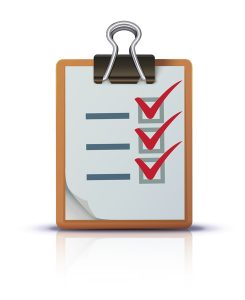 Wouldn’t it be great if your air conditioner would sent you a text message when something is wrong with it? What if you could avoid sudden breakdowns and expensive repairs? We agree, that’d be pretty awesome! Maybe one day this will be the case, but for now, it’s up to you as a homeowner to be diligent in your care for your AC system.
Wouldn’t it be great if your air conditioner would sent you a text message when something is wrong with it? What if you could avoid sudden breakdowns and expensive repairs? We agree, that’d be pretty awesome! Maybe one day this will be the case, but for now, it’s up to you as a homeowner to be diligent in your care for your AC system.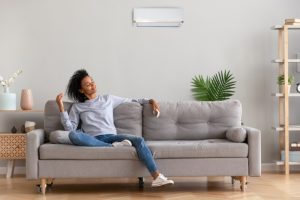 There are a number of things you can do this summer that will cost you next to nothing in order to boost your air conditioner’s efficiency and lower your cooling bills.
There are a number of things you can do this summer that will cost you next to nothing in order to boost your air conditioner’s efficiency and lower your cooling bills.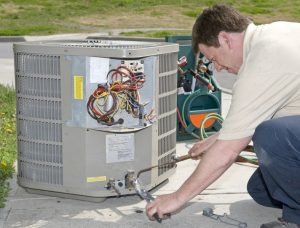 With summer officially here, we’re going to assume that if you’ve come upon a blog post about AC installation, you’re likely in a bit of a rush to get one in your home. Maybe your old system broke down, or perhaps you’ve never had central air conditioning and have decided to make the upgrade. Either way, we commend your decision—but do want to discourage you from rushing!
With summer officially here, we’re going to assume that if you’ve come upon a blog post about AC installation, you’re likely in a bit of a rush to get one in your home. Maybe your old system broke down, or perhaps you’ve never had central air conditioning and have decided to make the upgrade. Either way, we commend your decision—but do want to discourage you from rushing!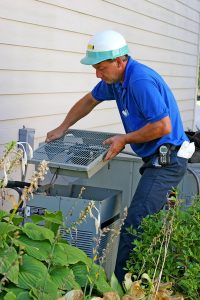 If not, there’s no need to worry—it’s not too late!
If not, there’s no need to worry—it’s not too late! Do you know what it takes to keep your air conditioner running as best it can, while also keeping your energy bills low and not sacrificing comfort? There are a number of factors that play a role in this, actually. Professional installation is vital, first off. Only a professional will know how to adequately size a new system for your home, and properly install it so you don’t have any operational problems right away.
Do you know what it takes to keep your air conditioner running as best it can, while also keeping your energy bills low and not sacrificing comfort? There are a number of factors that play a role in this, actually. Professional installation is vital, first off. Only a professional will know how to adequately size a new system for your home, and properly install it so you don’t have any operational problems right away.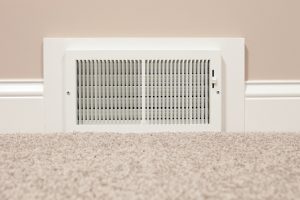 When folks hear the term “indoor air quality,” they often think about the temperature of their living space. This is certainly part of good indoor air quality, but not all of it! If you’ve lived in this area for even just a year, you know that humidity is a problem. Your air conditioner does have some dehumidification properties, but not enough to truly make a difference.
When folks hear the term “indoor air quality,” they often think about the temperature of their living space. This is certainly part of good indoor air quality, but not all of it! If you’ve lived in this area for even just a year, you know that humidity is a problem. Your air conditioner does have some dehumidification properties, but not enough to truly make a difference.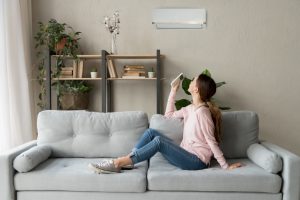 If you’re at all familiar with air conditioning maintenance schedules, which we hope you are if you’ve had a cooling system for at least a year, then you know that the typical schedule we recommend is that you have a tune-up each year. The reason for this is that the system needs annual cleaning and adjusting, as well as an inspection to check for repair needs.
If you’re at all familiar with air conditioning maintenance schedules, which we hope you are if you’ve had a cooling system for at least a year, then you know that the typical schedule we recommend is that you have a tune-up each year. The reason for this is that the system needs annual cleaning and adjusting, as well as an inspection to check for repair needs.